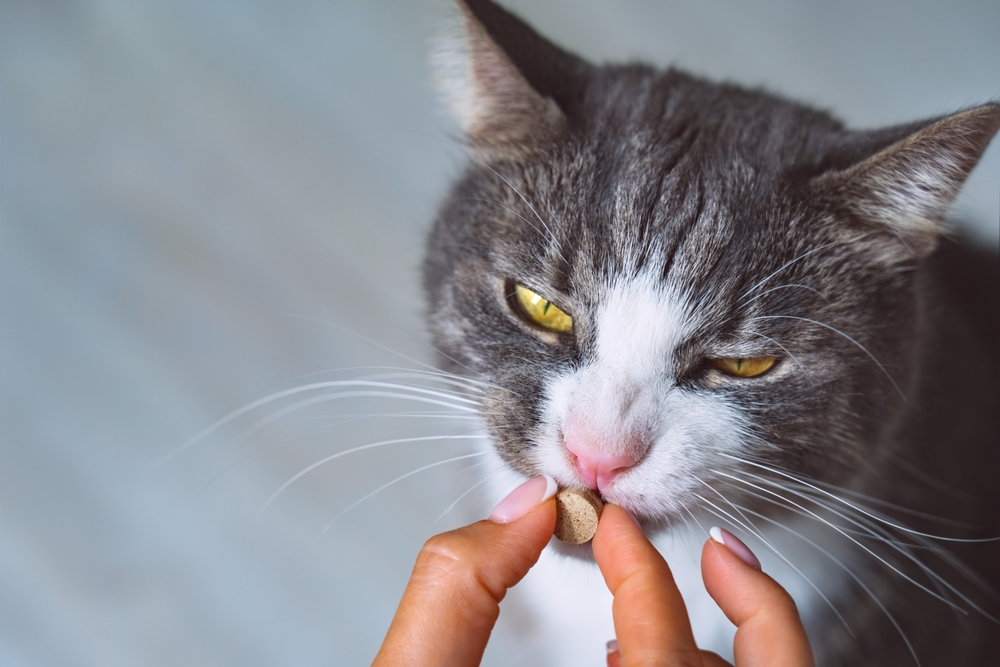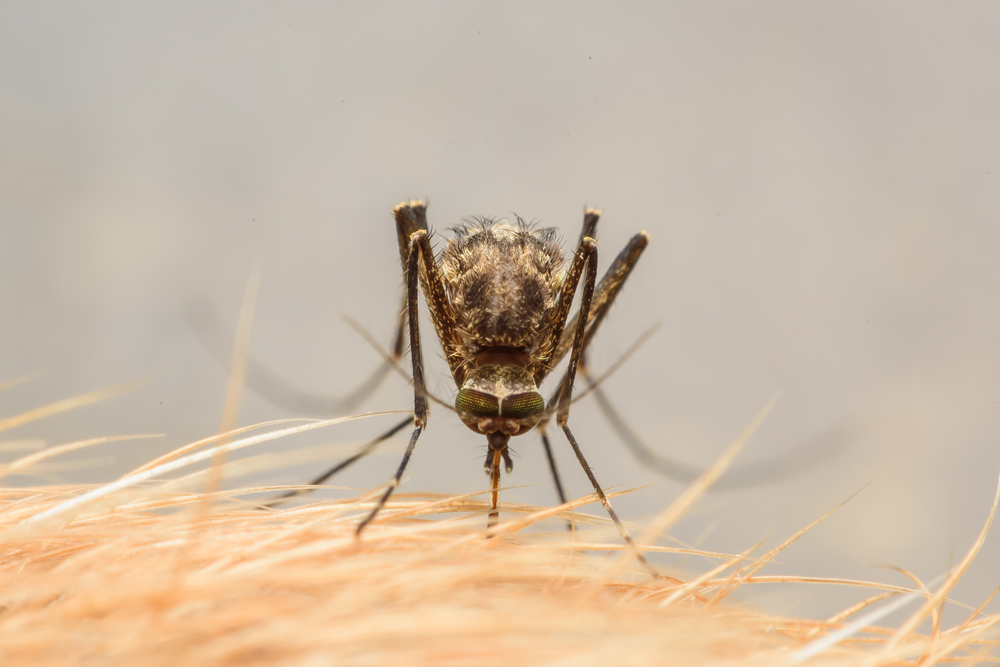The fact that your pet needs heartworm prevention and testing annually is common knowledge among pet owners, but other information about this serious disease sometimes lies shrouded in fiction. Understanding the truth about the cause of heartworm disease, the noticeable illness signs, available treatments, and how to best prevent the disease will go a long way toward protecting your pet from disease. Read on, to decipher fact from fiction about heartworm disease in pets.
Fact or fiction: Heartworm disease is contagious between pets
Fiction: Heartworms are transmitted via an infected mosquito bite. After the mosquito bites your pet and transmits heartworm larvae (i.e., microfilaria), the larvae migrate through your pet’s body and wind up in the large blood vessels surrounding the heart and lungs. After reaching maturity in five to six months, heartworms begin to reproduce. However, the immature heartworm stages still seriously damage your pet’s cardiovascular system as they travel to their preferred location. And, once they reside in the ideal spot in your pet, and begin producing microfilaria, a mosquito can bite them and take on a parasitic load, which can then infect another pet. So, while heartworms are not directly transmitted between pets, knowing if heartworm disease is prevalent in your area is important information.
Fact or fiction: Heartworm prevention needs to be given year-round
Fact: Heartworm disease doesn’t affect pets only in the summer. Mosquitoes are hardy pests that can survive mild winters in garages, or sneak into your home through an open door. And, if the outside temperature rises above freezing, mosquitoes can reemerge to infect pets at any time during the winter. Since we don’t have much of a winter here in balmy St. Cloud, Florida, year-round heartworm prevention is critically important to protect pets from the threat of potentially fatal disease.
Fact or fiction: Heartworm disease is easy to treat
Fiction: Preventing heartworm disease is much easier than treatment. In fact, no approved heartworm disease treatment is available for cats, and treatment for dogs is painful and expensive. If your dog develops heartworm disease, they will require two or three injections of an arsenic-based compound administered into their lumbar muscle. These injections can cause unpleasant side effects, such as pain, nausea, and general discomfort. Additionally, your dog will need to be kept calm and quiet throughout the treatment process, and for a month after the final injection, which can mean two months or more of short leash walks to go outside, and then back inside to a crate or small room.
Fact or fiction: Heartworm disease can affect any pet
Fact: You are more likely to hear about heartworm disease in dogs, but the disease can affect any pet. In fact, heartworm disease can occur in any mammal, although canines are the preferred host species. Because other pets, like cats and ferrets, are not preferred hosts, the parasites do not live as long in these animals, yet they still cause significant damage.
Fact or fiction: I’ll know if my pet has heartworm disease
Fiction: Heartworm disease can go undetected for months or years without an annual heartworm test. Signs can be subtle and take a long time to become obvious, but the worms can still be causing irreversible scarring to your pet’s cardiovascular system. While the heartworm larvae are growing and maturing, they can create numerous health issues in pets, particularly cats. If your cat is infected with heartworms, you may notice:
- Coughing
- Asthma-like attacks
- Periodic vomiting
- Lack of appetite
- Weight loss
- Difficulty walking
- Fainting
- Seizures
- Abdominal fluid accumulation
Unfortunately, the first sign in some cats is sudden collapse, or sudden death.
If your dog is infected with heartworms, you may not notice anything out of the ordinary for quite some time. Initial heartworm disease signs include a mild, persistent cough and reluctance to exercise. As the disease progresses, your dog may lose their appetite and weight, become fatigued after exertion, and develop a fluid-filled abdomen. These final heartworm disease stages can take years to become noticeable, which is why annual testing is so important for early detection and treatment.
Fact or fiction: Heartworm prevention is easy to administer

Fact: While giving a cat medication is often no easy task, administering heartworm prevention is not as challenging as you might expect. A variety of heartworm preventive formulations are available, including tasty chews, chewable tablets, topical liquids, and long-lasting injections. Additionally, heartworm prevention can protect your pet against intestinal parasites, like roundworms, hookworms, fleas, and ticks. Products are available in formulations that fit your pet’s lifestyle and acceptance of medication, making year-round heartworm prevention fit easily into your monthly routine.
Protecting your pet from heartworm disease is simpler than you think. Contact our Narcoossee Oaks Animal Hospital team for recommendations on the best heartworm prevention method that will suit your pet’s needs.







Leave A Comment